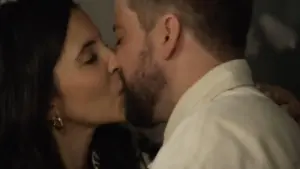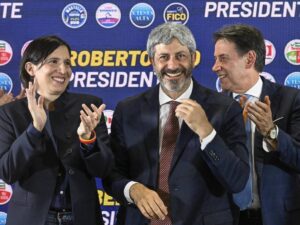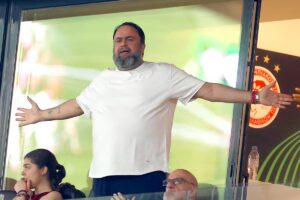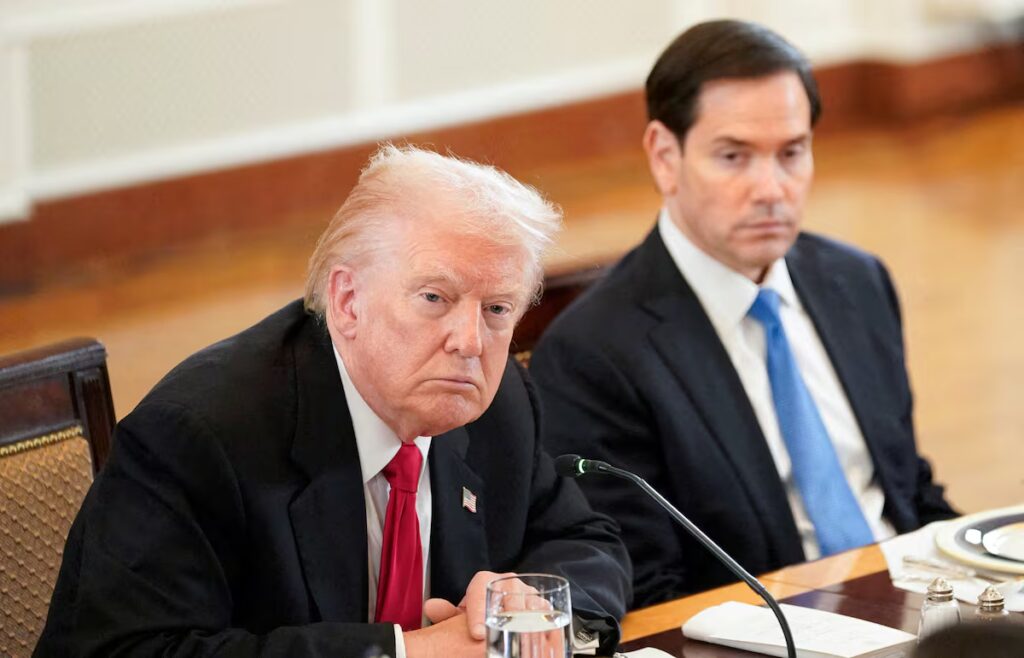
“When I have a problem, Marco solves it,” boasts Donald Trump of his Secretary of State and National Security Advisor. This week, Marco Rubio puts that reputation to the test. He is the key man on the two major international fronts that the United States has opened, and with two very different roles: in the negotiations on the war in Ukraine he took the reins to balance a clearly pro-Russian initial proposal and try to advance a peace plan acceptable to Kiev; In the fight with Venezuela, he is one of the drivers of the maximum pressure policy towards Nicolás Maduro.
It’s a situation with obvious advantages. If successful on both fronts, the chameleon-like head of American diplomacy, who knew how to channel himself and adapt to his boss’ positions – even in contradiction to the ideas he had espoused during his time in the Senate – would have shone his credentials before the president, a great admirer of decisive people. Trump has already mentioned his name, along with that of Vice President JD Vance, as possible successors starting in 2028. Avoiding a Russian-dictated peace plan for Ukraine would also earn him the gratitude of his European partners.
But at the same time, the Cuban-American runs the risk of a clash with the Trumpist bases of the MAGA movement, which is opposed to interventionism abroad. They would angrily view the possibility of prolonging the war in Eastern Europe. And, what’s worse, the duel in Venezuela has become one of the “eternal conflicts” that Trump promised to avoid in his election campaign.
The different positions aren’t just limited to the basics. Also to the Republican Party and the White House National Security team. Vance – with whom Rubio maintains an excellent personal relationship – has been a vigorous defender of the pro-Russian peace proposal for Ukraine. One of the vice president’s great allies, Army Secretary Dan Driscoll – who last week in Kiev tried to force President Volodymyr Zelensky’s acquiescence to the 28-point plan – was negotiating this Tuesday in Abu Dhabi with Russian and Ukrainian representatives, and will soon return to dealing with the Ukrainians. This Monday, Vance took to social media to attack Republican lawmakers who criticized the proposal, which initially called for Ukraine to cede territories under its control to Russia and drastically reduce its military.
For the moment, Rubio has scored a goal thanks to the meeting in Geneva between a delegation led by him and a Ukrainian mission supported by the Europeans. “Over the past week, the United States has made tremendous progress toward a peace agreement by bringing Ukraine and Russia to the negotiating table. There are still some delicate, but not impossible, details to resolve that will require more conversations between Ukraine and Russia,” White House spokeswoman Karoline Leavitt wrote Tuesday. Trump, in turn, added this Thursday, during the annual pre-Thanksgiving turkey pardoning ceremony: “We are very close to a deal.” The president announced that his special envoy, Steve Witkoff, will travel to Moscow to meet with Vladimir Putin.
The position was very different from that earlier this weekend, when the president warned that Zelensky “should appreciate” – and accept before Thursday – the peace plan apparently conceived after a meeting in Miami between White House special envoy Steve Witkoff; Trump’s son-in-law, Jared Kushner, and Kiril Dimitriev, confidant of Russian Vladimir Putin. Now the proposal has been reduced to 19 points; Territorial concessions were eliminated and language vetoing Kiev from joining NATO was changed. The thorniest points, as Leavitt underlined, will remain for subsequent negotiations. Thursday’s ultimatum has disappeared.
Flexibility in conversations
Rubio was responsible for this turning point. The US diplomatic chief traveled to Geneva to conduct talks on Sunday with the Ukrainians and European allies. Its addition introduced a new flexibility into conversations. The proposal on the table, as he himself defined it, is “a living, breathing document” and, therefore, modifiable.
“Rubio understands better than many others in this administration – none of whom are experts on Ukraine, and very few of whom know anything about Russia beyond clichés – that even in the difficult situation Ukraine finds itself in, there is simply no way the Ukrainian government can sign off on capitulation,” a senior European official told the digital channel Political.
Rubio, a hawk towards Moscow during his time as a senator, had already intervened on other occasions to correct the pro-Russian positions of Trump and his advisors. It was after his conversation with the Russian Foreign Minister, Sergei Lavrov, that the American president announced the cancellation of the summit he had planned with Putin in Budapest. In August he warned that the prospects for peace were “still a long way off” following the August meeting in Alaska between Trump and Putin.
Tension in Venezuela
Back in Washington and with an eye on what happens in the Abu Dhabi negotiations, Rubio will turn his attention this week to the other big focus of U.S. foreign policy: the situation around Venezuela, where the designation of the Cartel of the Suns as a foreign terrorist organization, a name used to refer to the group of senior officials linked to drug trafficking in the South American country, took effect on Monday. Washington accuses Maduro of leading that cartel.
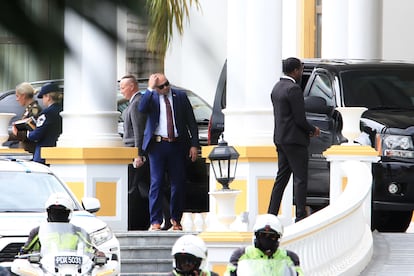
The Secretary of State, always in favor of the forced fall of Chavismo, was one of the great architects of the aggressive strategy of the United States, which maintains an enormous deployment of military power in the international waters of the Caribbean with the aim of combating drug trafficking. Rubio had already pressured Trump in his first term to force a regime change to benefit his opponent Juan Guaidó.
Rubio argued for regime change in the first months of the Trump administration, with the initial arguments being the human rights situation and voter fraud. Without great success, initially. But after taking the helm of the National Security Council, he presented a new thesis: that Maduro is a narco-terrorism leader, indicted by the Justice Department for alleged cocaine trafficking in 2020, during the first Republican term.
The former senator from Florida ousted the special envoy for Venezuela, Richard Grenell, with his strong hand towards Maduro, a supporter of negotiations with Caracas that would open the door to that country’s oil to American multinationals. Grenell was in contact with the Chavista regime during the first months of Trump’s term and also went there for negotiations that led to the release of American prisoners and approval for Caracas to welcome citizens deported from the United States.
In recent days, as Washington maintains tension with Maduro and continues military preparations, Trump has flirted with diplomatic means as a solution. Digital Axios – the same one who leaked the initial plan for Ukraine – assures that the Republican intends to have a direct conversation with the Venezuelan.
Rubio has a lot at stake in what happens, whether Trump ends up opting for some kind of military action or dialogue. If Maduro remained in power, the Venezuelan could boast of having defeated the Republican administration twice, after the fiasco of the first term. And the support the former senator receives among Latin American exiles, especially in Florida, could take a hit. But if the Chavista leader falls, the South American country could find itself in an even more dangerous situation of instability.

